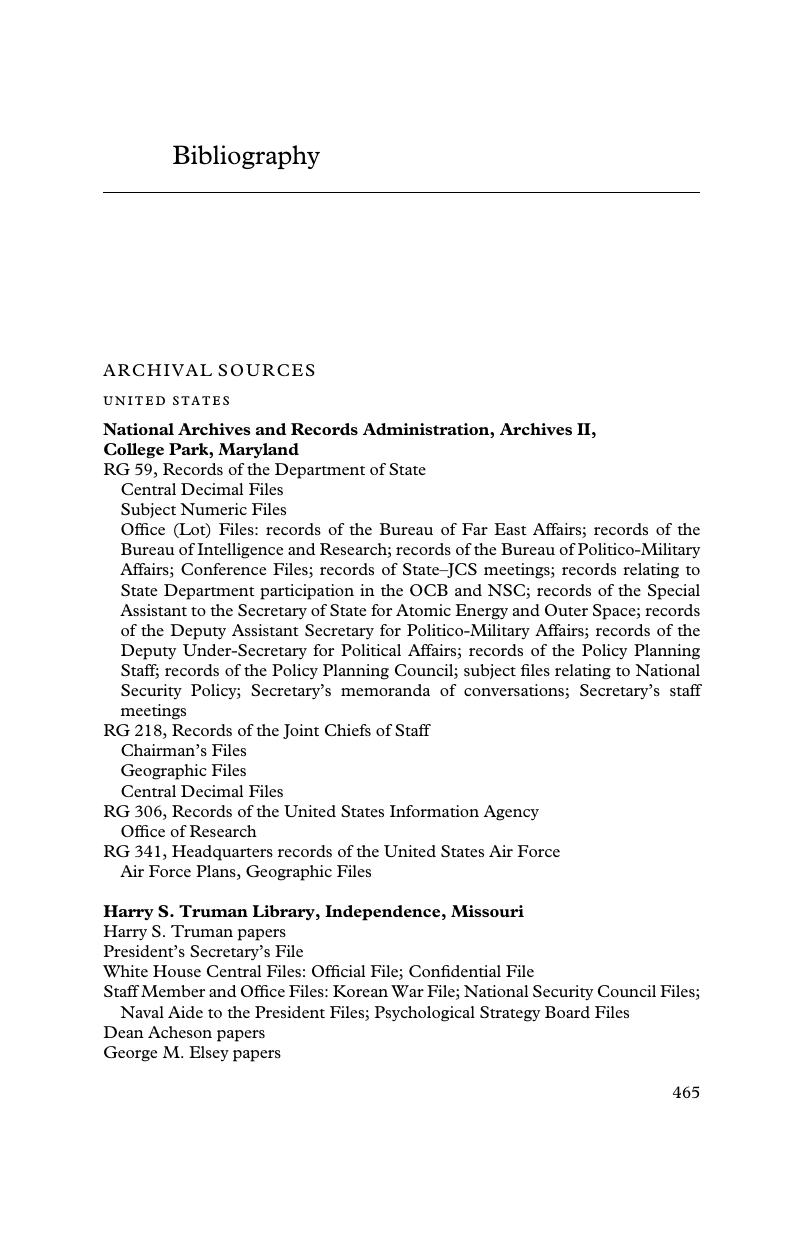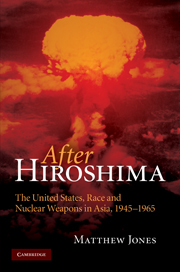Book contents
- Frontmatter
- Contents
- Acknowledgements
- List of acronyms
- Introduction
- 1 In the shadow of Hiroshima: the United States and Asia in the aftermath of Japanese defeat
- 2 The Korean War, the atomic bomb and Asian–American estrangement
- 3 Securing the East Asian frontier: stalemate in Korea and the Japanese peace treaty
- 4 A greater sanction: the defence of South East Asia, the advent of the Eisenhower administration and the end of the Korean War
- 5 ‘Atomic Madness’: massive retaliation and the Bravo test
- 6 The aftermath of Bravo, the Indochina crisis and the emergence of SEATO
- 7 ‘Asia for the Asians’: the first offshore islands crisis and the Bandung Conference
- 8 A nuclear strategy for SEATO and the problem of limited war in the Far East
- 9 Massive retaliation at bay: US–Japanese relations, nuclear deployment and the limited war debate
- 10 The second offshore islands crisis and the advent of flexible response
- 11 The Chinese bomb, American nuclear strategy in Asia and the escalation of the Vietnam War
- Conclusion: from massive retaliation to flexible response in Asia
- Bibliography
- Index
- References
Bibliography
Published online by Cambridge University Press: 03 May 2010
- Frontmatter
- Contents
- Acknowledgements
- List of acronyms
- Introduction
- 1 In the shadow of Hiroshima: the United States and Asia in the aftermath of Japanese defeat
- 2 The Korean War, the atomic bomb and Asian–American estrangement
- 3 Securing the East Asian frontier: stalemate in Korea and the Japanese peace treaty
- 4 A greater sanction: the defence of South East Asia, the advent of the Eisenhower administration and the end of the Korean War
- 5 ‘Atomic Madness’: massive retaliation and the Bravo test
- 6 The aftermath of Bravo, the Indochina crisis and the emergence of SEATO
- 7 ‘Asia for the Asians’: the first offshore islands crisis and the Bandung Conference
- 8 A nuclear strategy for SEATO and the problem of limited war in the Far East
- 9 Massive retaliation at bay: US–Japanese relations, nuclear deployment and the limited war debate
- 10 The second offshore islands crisis and the advent of flexible response
- 11 The Chinese bomb, American nuclear strategy in Asia and the escalation of the Vietnam War
- Conclusion: from massive retaliation to flexible response in Asia
- Bibliography
- Index
- References
Summary

- Type
- Chapter
- Information
- After HiroshimaThe United States, Race and Nuclear Weapons in Asia, 1945–1965, pp. 465 - 490Publisher: Cambridge University PressPrint publication year: 2010



